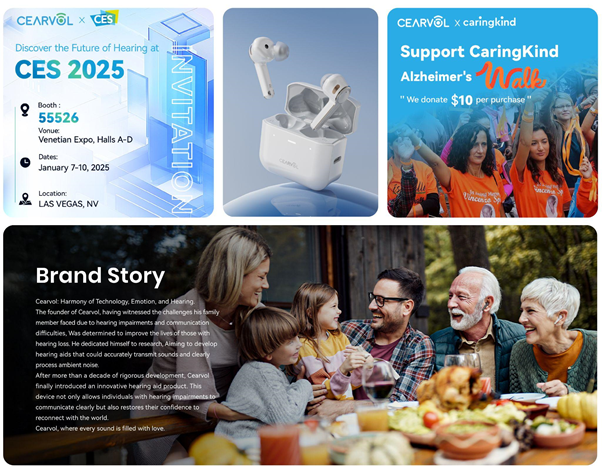Generative AI for SEO
Introduction
Generative AI has significantly influenced search engine optimization (SEO) by providing valuable insights and techniques to help businesses remain competitive. This integration of AI with SEO has transformed content creation and marketing strategies, resulting in notable changes in digital marketing approaches through enhanced online presence and increased organic traffic.
Comprehending: What is Generative AI?
Generative AI uses AI algorithms to analyse large data sets and independently create creative content, mimicking human creativity. This technology saves time and effort by automating content creation processes. Deep learning and neural network developments create sophisticated AI models that can provide realistic content for various media. Reinforcement learning improves content generation accuracy. Generative AI is commonly used in marketing and advertising to create personalised content and services based on client data and preferences.
By automating processes, producing creative material, and obtaining insightful knowledge, generative AI is transforming decision-making and content production across industries. It is also utilised in healthcare to evaluate medical data for diagnosis and therapy planning, as well as in entertainment to provide interesting content. More inventive applications are anticipated as AI develops.
What is SEO (Semantic SEO)?
SEO is a strategic strategy to boost a website’s visibility on search engine results and generate organic traffic. It involves various strategies, including semantic SEO, which goes beyond keyword stuffing and considers user queries. It optimises content for specific keywords and related terms, improving visibility and relevance. Strategies include content structure optimization and natural language processing.
Convergence of AI and SEO (Semantic SEO)
The integration of AI algorithms with Semantic SEO is revolutionising digital marketing by enhancing search engine results, website exposure, and content relevance. AI algorithms analyse user behaviour, competitive data analysis, and search patterns, allowing marketers to refine their SEO techniques with precision. Semantic SEO optimised content by focusing on semantic relationships and contextual understanding, driving higher engagement and conversion rates. The use of machine learning algorithms in Generative AI further streamlines content creation processes, aligning with user needs and preferences. This integration not only enhances marketing tactics but also provides businesses with a competitive advantage in the online market.
- AI algorithms can analyse vast data to identify trends and patterns, guiding SEO strategies. This helps marketers understand user behaviour, search trends, and competitor performance. Generative AI can support keyword research and analysis, identifying high-search volumes and low competition keywords for content optimization and targeted keywords for organic website traffic.
- Artificial intelligence (AI)-driven content optimization solutions optimise websites, pinpoint problem areas, and offer suggestions for raising search engine rankings and user interaction.
- By analysing user data, AI systems may personalise interactions across touchpoints, increasing engagement and boosting SEO conversions. Customer satisfaction and conversion rates can rise when tailored content recommendations are produced using generative AI.
- One major development in SEO is AI’s capacity to evaluate website content and provide on-page element modifications. It evaluates headings, meta tags, and titles using sophisticated algorithms and machine learning, and then provides data-driven recommendations to improve search engine visibility and ranking.
- AI-powered automation tools streamline repetitive tasks, allowing marketers to concentrate on strategic initiatives, optimising SEO efforts from keyword research to content generation, link building, and performance tracking.
With AI and SEO (Semantic SEO) working together, marketers have more ways than ever to enhance their approaches, increase organic traffic, target relevant keywords, optimise content, and maintain their competitive edge in the dynamic SEO market.
Implementing Generative AI for SEO
Evaluate your current SEO strategy before implementing AI, identifying areas for improvement and maximising potential for AI-driven enhancements. Thorough analysis can provide valuable insights and help in preparing SEO strategy for AI integration
First of all Creating high quality content is essential to successful SEO and Generative AI is revolutionising SEO by generating high-quality, relevant content at scale, enhancing engagement, and driving organic website traffic by analysing existing content and suggesting topics.
Moreover, keyword research, an essential aspect of search engine optimization, Generative AI can improve keyword research, search engine rankings, and organic traffic by utilising vast datasets for keyword identification.
Generative AI enhances SEO strategy by analysing competitors, identifying industry dynamics, and recommending customised strategies, while also providing detailed performance tracking reports and recommendations for business optimization.
Generative AI Platforms
Generative AI tools and platforms can enhance search engine optimization by utilising advanced algorithms and machine learning techniques. SEMRush’s Content Analyzer evaluates content, identifies improvement areas, and provides recommendations for website performance. OpenAI’s GPT-4 generates human-like text, while Google’s RankBrain uses machine learning to understand user queries. These tools simplify SEO efforts by producing high-quality content, optimising keywords, and analysing data, resulting in better results.
Emerging Trends and Challenges of AI for SEO
Generative AI, sometimes referred to as creative AI, uses algorithms to create original content, which has the potential to completely transform SEO by enhancing websites’ search engine optimization. With virtual assistants like Siri and Alexa, voice search optimization can be improved, leading to improvements in user experience, engagement, and organic website traffic.
With the introduction of new trends like voice search optimization and tailored search results, AI technology is revolutionising SEO. To be competitive, marketers need to keep current. Although generative AI automates content creation, authenticity requires balancing automation with human touch. AI-driven analytics facilitates trend identification, strategy optimization, and opportunity discovery.
Generative AI offers numerous benefits for SEO, but businesses must address ethical implications and potential bias in algorithms. Transparency and regular audits can help promote fair practices. AI enhances human creativity by automating repetitive tasks and directing efforts towards higher-level creative endeavours. However, the continuous evolution of AI algorithms presents challenges, as search engines refine algorithms to understand user intent and deliver more relevant results.
Wrap up
The integration of Semantic SEO and Generative AI is expected to revolutionise digital marketing, enhancing visibility and organic traffic. However, businesses must be cautious about moral issues, openness, and responsible AI use. By embracing this fusion, they can achieve long-term success in the competitive online market.












